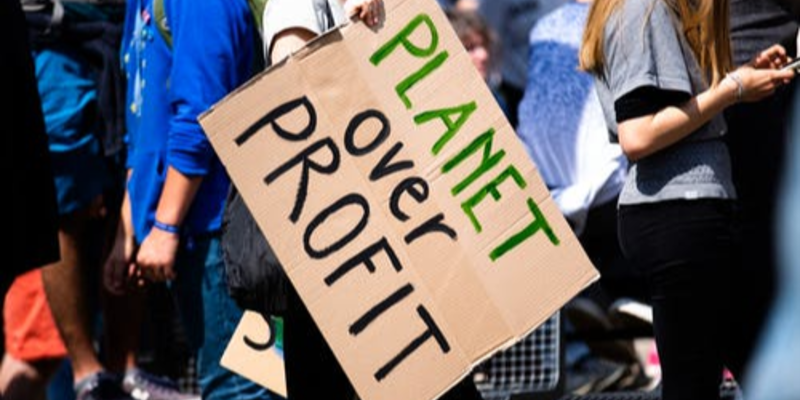Studying Geographies of Global Insecurities

BA Liberal Arts student and Student Sustainability Architect, Amelia Cookson, has written this blog after learning more about climate justice through the Geographies of Global Insecurities module.
What is the module called and what is it about?
My degree is Liberal Arts and I major in English Literature and minor in Politics. This year, for my politics option I enrolled onto a module called ‘Geographies of Global Insecurities’. This was split into three blocks: conflict, migration, and climate justice. I was particularly interested in the climate justice block. This looked at the how climate change is a global security issue which highlights the injustices of the climate crisis, as many of the countries who are experiencing the devastating effects of climate change are the smallest global polluters.
Why did you choose this module?
I chose this module as I have wanted to learn more about climate justice and injustice. I have always had an interest in sustainability and this module would allow me to unpack more of the issues I am really interested about.
What have you learned so far? What is the best thing about the module?
One of the most interesting and thought-provoking things I learnt in this module is how to look at climate change as a systemic issue rather than purely scientific. By focusing on climate change through the lens of climate justice people come first, and this is an approach which really resonates with me. By putting people at the heart of climate change solutions it ensures that the approaches are just and therefore sustainable in the long-term.
On a personal level, I found this module made me question lots of the world around me. During my year in industry, I worked on a sustainability project for a large transnational corporation, and it got me asking myself to what extent these neoliberal structures can be effective in ensuring climate justice. Therefore, not only did I learn academically but I also had to ask myself some conflicting personal questions, based on my previous experience.
How does this module link to sustainability?
The idea of climate justice argues that there can be no true sustainability without climate justice.
How do you plan on applying what you have learned/have you got any examples on where you have already applied your learnings (either as part of the module or beyond)?
Moving forward, I hope to carry many of the lessons I learnt from this module into my future career, as I hope to build a career in sustainability. When tackling sustainability issues, I will remember to look at the issue holistically and ensure my problem solving is putting people first. After all, there is no solution to climate change without climate justice.
Why should others select this module?
If you are interested in sustainability, this is the module for you. It opens your eyes to the structures around you and the gets your asking what a sustainable future should look like.
The University is committed to embedding sustainability across the whole Leeds Curriculum and is working to ensure students of any discipline can study, research and participate in sustainability and learn across disciplinary boundaries in an equitable and just way. To find out more about how to do embed sustainability into your degree, visit the Leeds Sustainable Curriculum webpages.
Keep up to date on the latest news
-
- Follow us on Twitter: @UoL_Sus
- Follow us on Instagram: @uol_sus
- Follow us on Facebook: @UoLSustainability
- Sign up to our Sustainability newsletter
United Nations Sustainable Development Goals
We use the United Nations Sustainable Development Goals (SDGs) as a framework to guide our activity. Amelia's blog is linked to the following SDGs:
- Goal 4: Quality Education
- Goal 10: Reduced Inequalities
Find out more about our impact on the SDGs.
